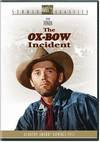State of the Union (1948, black & white)
After a long and somewhat unjustified hiatus, which I won’t waste your time with here, I’m back. And I’m going to change my format a bit. Instead of writing about three movies at a time, I’m whittling that down to just one. And, I will no longer ignore the cast members of these films. My reasons for the change will, hopefully, be obvious by my choice of the movie that was chosen for my return ─ State of the Union.
Let me begin by saying that the current political discourse in this country is extremely troubling to me and, I’m sure, many other Americans. The us-versus-them mentality that dominates our politics is childish, embarrassing and ─ more important ─ ultimately self destructive. And it occurs for one reason: to elect people who will promote laws that only reflect one set of beliefs and restrict laws that reflect all other beliefs. This equation too often ignores promoting laws that are for the good of the country as a whole ─ although politicians of all stripes will claim that is what they are doing. But I have to question, for instance, why is it that when some politicians call universal health care an entitlement program, they make it sound like it is evil to believe that health care is something to which all people should be entitled? But I fear I may be getting too far afield.
State of the Union, which has a star-studded cast that gives exceptional performances, is about the short-lived political career of self-made business magnate ─ and apparent philanderer ─ Grant Matthews [played by Spencer Tracy]. The other woman, Kay Thorndyke [Angela Lansbury], runs a newspaper empire and aspires to be America’s king maker and Grant Matthews is her would-be king. But the wild card in the deck is Grant’s wife, Mary [Katherine Hepburn], who is aware of the philandering but believes her husband still loves her and is waiting for him to come to that realization. (This movie parallels today’s American politics is oh so many ways.)
The initial political overtures to Grant are made at the office of a political advisor named Jim Conover [Adolphe Menjou], who uses his Washington home as a boarding house for visiting politicians and citizens of note. The meeting is also attended by Kay Thorndyke and one of her political reporters, the wise-cracking Spike MacManus [Van Johnson]. But Grant is skeptical. He is not sure that politics is for him. He doesn’t particularly trust politicians and dislikes the way they run things. He is told that he could change that once he is in office. He worries that he would be forced to say and do things that he doesn’t believe in, and he warns them that he would speak his own mind without interference from others. He is told that he will be able to be his own man.
Then the subject of Grant’s relationship to Kay arises ─ after all, a presidential candidate should be beyond reproach. They agree not to see each other and Grant then calls Mary to ask her if she would join him on a speaking tour he had already scheduled in cities where he had business interests. Mary would not be told of the political side until she arrived in Washington. Grant makes it clear that he would not run without Mary’s support.
In the next scene, which is my favorite in this movie except for the climax, Grant stops in front of the White House as he considers the proposition. A man approaches and asks him what he thinks of it, to which Grant replies, “It needs a coat of paint.” The man is incredulous and questions Grant about what he thinks about the people who have lived there and what the White House represents. Grant then goes on for what seemed like ten minutes (I know it was shorter, it just seem that long.) naming all the people who made the White House what it is. Included in those names are people from all over the world ─ philosophers, religious leaders, scientists, writers, painters, sculptures, explorers and, of course, American presidents and others who have fought for liberty in this country and elsewhere. The most interesting of this final group was a name that I hadn’t heard during the previous times I had seen this movie, a name I’m sure few people have ever heard of at all, and a name that made me marvel at the fact that someone from that period of American history would think to include it in this scene. That name is Crispus Atticks, the first man who died fighting for America’s independence. The inclusion of the name of this black man reinforced something that I had noticed during my earlier viewings of this movie: In this scene, Grant Matthews seems to be implying that although the United States (as symbolized by the White House) is a wonderful thing to behold, it still needs some sprucing up (like a fresh coat of paint) that would make it a better place in which to live.
When Mary arrives at Conover’s house, she is told by her host of the possibility of Grant embarking on a campaign for the presidency. She thinks it’s a wonderful idea and the two (Mary and Grant) seem to be getting along just fine until Mary finds Kay’s glasses on Grant’s night table. Kay had gone out of her way to covertly place them there so that Mary would find them. While this creates some friction (Grant winds up sleeping on the floor), it does not derail the campaign. And as Mary and Grant discuss their relationship, Grant tells her, truthfully, that he doesn’t know how Kay’s glasses would up in his room. When the conversation ends, Mary, who anyone can plainly see loves her husband, comes to believe that their marriage is still salvageable.
On the campaign trail, the couple seems to grow closer and Grant is making a big hit with his speeches. Conover, in the meantime, is meeting in smoke-filled rooms with political operatives plotting strategy and promising political payoffs for their support. Grant’s next to last speech on the tour, however, raises a red flag for Conover and Kay. Instead of pandering to the labor crowd to which he was speaking, he apparently told them that they need to do more to get along with management and to stop being so combative. This has apparently displeased the labor leaders, although the rank and file union members seem to approve of the tone of the speech. And knowing Grant, Conover and Kay worry that in his next speech to business leaders Grant will alienate them as well by telling them they also have to clean up their act.
Another interesting point about this movie: There is a scene when Mary and Grant are discussing politics with a waiter. The waiter tells them that his wife says the country would be better off with a woman as president. Both Grant and Mary laugh about it and ask why the waiter’s wife feels that way. The waiter tells them that men are like roosters who always fight and accomplish little. Women, on the other hand, are like hens ─ not nearly as aggressive, with more of a tendency to try to get along, and they’re the ones who produce the eggs. Interesting analogy, huh?
I have to admit that although I have never been surprised that Katherine Hepburn would accept a role where her character would be tolerant of a husband’s infidelity ─ after all, in real life she was the other woman in Spencer Tracy’s marriage ─ but the idea that she would pooh-pooh the notion that a woman could be president of the United States seems to go against her feminist grain. Maybe I’m reading too much into this, considering that the movie takes place in 1948 and the feminist movement didn’t come to full bloom until the 1960s.
Anyway, MacManus, now Grant’s campaign manager, and Conover try to get Grant to deliver a speech to the business community that has been written for him. But Grant, with Mary’s encouragement, refuses. They produce letters and telegrams from “the people” that praised Grant’s speeches. Conover tells them to forget about the little guys because they aren’t the ones who deliver the delegates at the state and national conventions that nominate the candidates. But Grant remains steadfast ─ that is until he is called into a closed-door meeting without Mary and with Kay, who convinces him to follow Conover’s advice. After the speech, letters and telegrams of support pour in from people pledging money and delegates and Grant sees the logic to Conover’s strategy.
Mary, however, becomes unhappy with the new tack Grant has taken. Earlier in the movie, she had warned Conover that playing the traditional political game would figuratively kill the real Grant and turn him into something that he would come to despise. Now she is watching that happen. And on top of that, MacManus tells Mary the plans that have been made for a radio and TV address to announce Grant’s candidacy for president of the United States have to include a photo op of Mary, Grant and Kay together. The reason: to dispel any doubt that there is anything untoward going on between her husband and the media czarina. Mary reluctantly agrees.
On the night of the big shebang, after everything has been set up and the speakers have begun addressing the nation, Mary learns of Grant’s meeting with Kay ─ the meeting after which he changed strategy. Then she hears Conover and Kay wrangling with the political operatives over the deals that have been made in her husband’s name. Disgusted, she sends her children, who were both supposed say something on air about their father, to bed. Then, she refuses to give the speech introducing her husband. When Grant learns about Mary’s change, he, Conover and Kay plot a damage-control strategy, with Kay introducing Grant. But MacManus, who has grown fond of Grant and Mary, talks her into giving the speech.
When Mary steps to the microphone and begins to talk, Conover and Kay are elated, but Grant is furious. He realizes that Mary is going against her own conscience to help him out ─ and while he allowed himself to sell his soul to the devil for the chance of fame and glory, he knew he could not allow the woman he loved to do the same. He took the microphone away from Mary and confessed his sins ─ the back-room deals, the insincerity of his speeches, his greed for political power. Then, after telling his audience that he didn’t deserve to be president, he told them what he really believed ─ that all the nation’s citizens should be entitled to whatever medical treatment was necessary to sustain their good health, that we should be willing to share our good fortune with our neighbors and the rest of the world, that we should embrace the idea of a global government, that we should not let fear divide us and keep us from being the kind of nation that we can be.
It is powerful stuff ─ and it is a movie that should be required viewing for all politicians and everyone who considers a career in politics.
Tuesday, December 22, 2009
Subscribe to:
Post Comments (Atom)






























































No comments:
Post a Comment